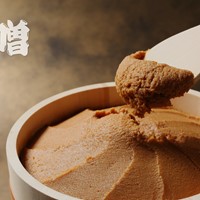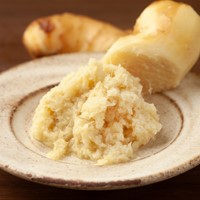The Growing Organic Vegetable Scene in Japan: A Fun Dive Into the Trend!

This article is contributed by HATA'S HAMPER.
It is always heartwarming to hear foreign residents in Japan rave about Japanese vegetables. Comments such as "Japanese vegetables are delicious," "Japanese vegetables are different," and "I like vegetables more now that I live in Japan" are often heard. And when these products are sold overseas, they are valued for their quality.

Why are Japanese vegetables so popular? Here are some key factors:
Freshness: Fresh and crisp vegetables are packed with nutrients.
In Season: Vegetables peak in taste and nutrition during this time.
Provenance: Consumers feel more assured when they know the source of the locally-grown, organic vegetables.
Price: Keeping expenditure within budget helps in the long run.
Usage: The right vegetable can elevate any dish, whether it is a salad, stir-fry, or soup!
Agricultural Methods: Organic farming, free from synthetic chemicals, is preferred for better food quality and environmental sustainability.
Organic Farming in Japan
Organic vegetables in Japan have gained popularity due to rising health and environmental awareness. In May 2021, the Japanese government introduced the “Green Food System Strategy” to build a more sustainable society. The strategy aims to reduce chemical use and promote renewable energy. One way to achieve this is to encourage organic farming by increasing organic farmland to 25% of the total farmland by 2050.
As of 2020, organic farming accounts for just 0.6% of the country’s agricultural land (see jacom.or.jp) which is very low compared to Western countries and other parts of Asia. Only half of the organic farmers have the government-backed JAS Organic certification, showing room for growth in Japan’s organic farming sector.

Different Organic Farming Methods in Japan
Japan uses various organic farming methods, each with its own approach to sustainability and natural cultivation. Let’s dive into a few key ones!
Natural Farming (自然農法 Shizen Nōhō)
This method emphasizes minimal intervention. Farmers focus on letting nature guide the growth of crops, using organic materials like compost and green manure to nourish the soil and encourage healthy ecosystems. The focus is on maintaining the natural balance in farming.
Pesticide-Free Farming (無農薬農法 Munōyaku Nōhō)
This approach avoids chemical pesticides. Instead, farmers use biological predators such as ladybugs to eat aphids, or physical barriers to keep pests away. They also focus on soil health by using organic materials instead of synthetic fertilizers.
Circular Farming (循環型農法 Junkan-gata Nōhō)
Circular farming revolves around sustainability. Waste is recycled, crop residues are composted, and animal manure is used as natural fertilizer. This method aims for a self-sustaining, low-waste system.
"Kin-chan” Farming (菌ちゃん農法 Kinchan Nōhō)
This farming method has a unique approach of incorporating mycelium (fungal threads) to improve soil health. It does not use chemical pesticides or fertilizers, instead focuses on organic materials like waste, cotton, and hemp to boost soil quality.
What also makes this method special is the role that mycelium plays. It absorbs nitrogen and helps promote plant growth, improving the soil’s overall health. After visiting a farm using this method, I was struck by how light and sandy the soil felt when I pulled out the carrots. Not only was the farming method sustainable, the nutrient-rich vegetables grown this way tasted incredibly delicious.
Understanding "Organic" Vegetables in Japan
So what does it take for vegetables to be labeled “organic” in Japan? First, the farmland responsible for the organic produce must have the strict Organic Japan Agricultural Standards (JAS) certification and produce their vegetables in accordance with Organic JAS before it can bear the Organic JAS mark. The JAS certification is a mark of trust and standard. In fact, it is illegal to label any agricultural product as "organic" without such proper certification.
To receive this certification, the farmland must fulfil the following conditions:
- No chemical fertilizers or pesticides, so only natural fertilizers like compost are used.
- No GMOs (Genetically Modified Organism refers to plants, animals or microbes with altered DNA through genetic engineering techniques).
- Soil must be free of chemicals for at least two years prior to seeding or planting.
Is it easy to find vegetables with the Organic JAS mark?
Not really, it can be tricky. Why?

In order to obtain certification for products, farmers have to adhere to detailed guidelines which are neither quick nor easy. Furthermore, small-scale farms are financially stretched when they take on the certification process and subsequent maintenance. Hence, obtaining the Organic JAS mark can be a challenge for many farms.
Does the absence of the JAS mark mean that vegetables are not safe for consumption?
Not at all! Just because the produce does not have the Organic JAS mark, it does not mean it is unsafe. As explained earlier, many farmers follow organic practices but because of their small setup, they cannot afford the certification. As long as customers know the source of the produce and how it was grown, it is likely to be just as healthy.
How to Find Organic Vegetables in Japan
While finding certified organic vegetables can be tricky, there are a few ways that you can spot them in the supermarket easily.
Check the Local Produce Section
Many supermarkets have a local produce section where organic vegetables are sold directly from farms. These are often grown without synthetic chemicals.
Look for the Label "Organic" (有機)
If you see "organic" or "grown without chemical fertilizers" on packaging, it is likely that the produce was grown using organic methods.
Find the Organic Produce Section
Many stores have a separate organic section, making it easier to find high-quality produce.
Ask the Staff
Do not hesitate to ask store staff about organic produce. They can guide you to the right section/s and help identify relevant items.
Look for Producer Information
Farmers often share details about their farm, so you can learn more about their organic practices and ensure you are buying produce that match your standards and needs.

Where to Find Organic Vegetables Beyond Supermarkets
If you want to take your search further, here are some cool spots to explore:
Direct Sales Markets (Chokubai-jo)
These are local markets where farmers sell their freshly grown organic vegetables directly to consumers. This is a great opportunity to chat with farmers and learn more about their practices.
Farmers' Markets
Farmers’ Markets are often held in community spaces, and they offer a convenient way to purchase organic, locally grown produce. You can chat with farmers about their cultivation methods and also find fresh organic vegetables.
Restaurant and Café Partnerships
Some restaurants and cafes source organic vegetables directly from local farms. These places sometimes even sell the same vegetables they use in their dishes, so you can take some home!
Organic Shops
Specialty organic shops carry a curated selection of organic vegetables, often more carefully selected than what you might find in regular supermarkets.
Agricultural Events and Workshops
Attending agricultural events and workshops offer the chance to meet local farmers, learn about organic practices, and buy produce directly from them.
Online Shopping
You will find that online food stuff shop now offer subscriptions for organic produce, making it easier to have fresh vegetables delivered to your door.
Japan’s world of vegetables is rich in flavor, history, and sustainability. While the Organic JAS certification is a reliable way to identify organic produce, many small-scale farmers use organic methods without formal certification. Whether you are looking for organic produce or just want to support sustainable farming, Japan offers many avenues to enjoy delicious, eco-friendly vegetables. By exploring local markets, asking the right questions, and finding the right farming practices, you are supporting a healthier food system and getting a boost or two from amazing vegetables!
Happy shopping, and happy eating!
Purchase Shun Vegetables Online
HATA's Hamper is an online delicatessen that offers a curated selection of premium foods in Japan. Showcasing the rich flavors of the changing seasons, it also features ingredients sourced from trusted farms. The platform is dedicated to sharing the beauty of seasonal cuisine while delivering the joy of fresh, high-quality ingredients.
















